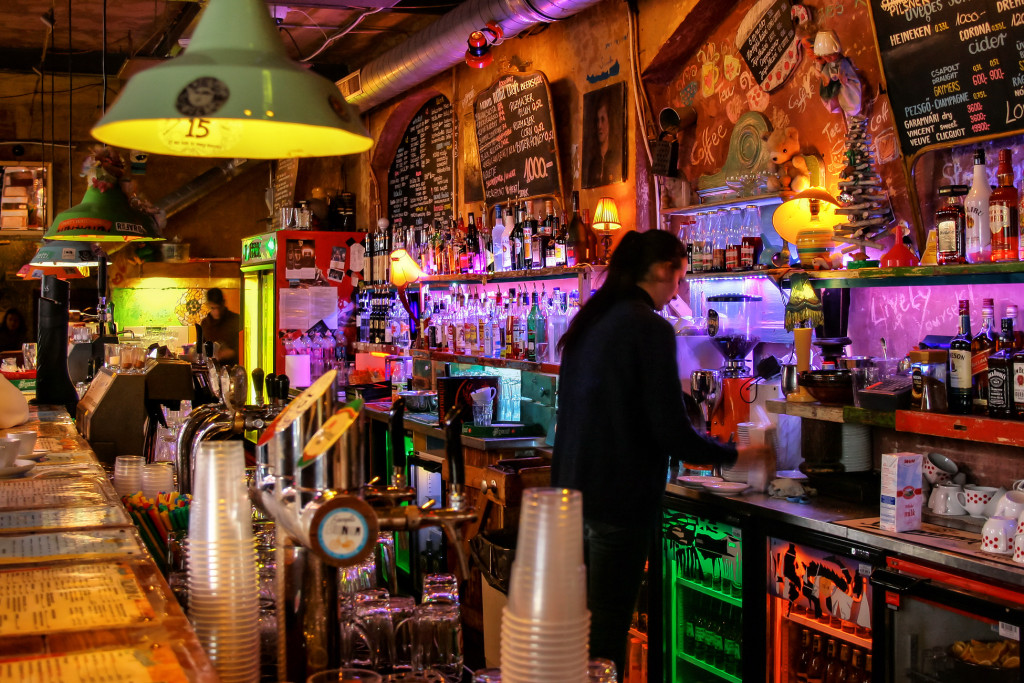Recently Budapest, the capital of Hungary, has also become popular with tourists thanks to its sparkling nightlife besides its historical and cultural sights. The centre of nightlife, in downtown Budapest, District VII, is the so-called Ezsébetváros.
The area exists in a well-defined place, which is called the Party District nowadays. In the Party District, there are so many bars, clubs, and other entertainment facilities crowded in a small area that people who want to go out have plenty to choose from.
Thanks to the regulations of District VII, the Party District allows long opening hours, so all of the parties here may continue long after dawn – therefore they produce a significant profit for the catering industry and the city. Nevertheless, as it is with most things in life, there are two sides of the same coin.
The Other Side of the Coin
People who live in the district are complaining about the noise, the dirt, and public safety concerns – all due to the nightlife which makes their homes uninhabitable. These people have created a Facebook group called “Élhető Erzsébetváros” to assemble all inhabitants wanting to live a calm life in a civil initiative which have organized several demonstrations in support of a curfew. The group is ready to compromise with nightclubs and pubs that are open to this, but they have declared that the current situation is unacceptable.
The next episode in a series of oppositions was the demonstration of the workers of the Party District who also gave voice to their opinion in August last year and demonstrated next to their workplaces. They said the Party District ensures their livelihood and the closing down of clubs places would result in worsening public safety. The reaction of the District VII local government was to order a local referendum this February on the question of opening hours.
Eventually, the referendum was invalid due to low turnout: the validity criteria required that 50% of inhabitants of District VII should have cast a vote, and in this case less than 20% of people voted.
What Next?
As of now, there is no meaningful resolution concerning the future of the Party District – which is why Balázs Szücs, a representetative of the local government, decided to organize a series of events, the first part of which was held on the November 6 with the title “What Is Next, Party District?” in Spinoza Theater.
The event had two roundtable discussion sections, the first of which was moderated by Balázs Szücs and the second one by Adrienn Csepelyi, a journalist and local resident. The participants discussed the topic from different perspectives and, as a result, were able to suggest several ideas for potential solutions.
The participants of the roundtable discussions were András Róna (a lawyer), Dániel G. Németh (representing Night Mayor Budapest), Balázs Horváth (representing Fogas Ház-Instant Club), Gábor Bódis (a professor), Balázs Böcskei (a political analyst), Gergely Olt (a sociologist), and Dávid Király (a communication specialist at Republikon Institute).
During the conversations, participants discussed questions about potential benefits for the residents, the position of catering industry, and the responsibility of the local government. Concerning the judgement of the role of local government they were all on the same page.
They all agreed that the local government must play a very important role in solving situtation, as Balázs Szűcs pointed it out in his speech; currently, both sides are left alone to try and come up with a solution, even though they by themselves cannot create and enforce those rules which would be necessary. This is the jurisdiction of the local government.
The presence and the effects of tourism on the area people are living their daily life in were also mentioned. In this context, there were suggestions such as transforming tourism and branding the district which could lead to better-quality tourism; on the other hand, some participants criticized the strong presence of tourism and its harmful effects of inhabitants.
Besides the importance of planning, consensus-based regulation and a meaningful dialogue between the parties were the most relevant themes of the roundtable discussions that all participants agreed on.
At the end of the event, participants of local civil initiatives decided to cooperate and declared that they would make a suggestion to the local government concerning the most urgent affairs.
The series will be continued in the future.



